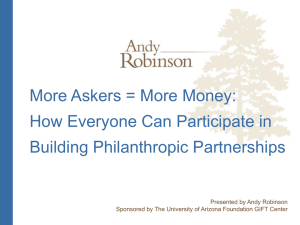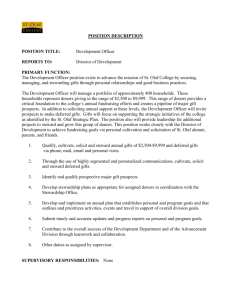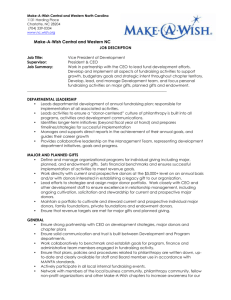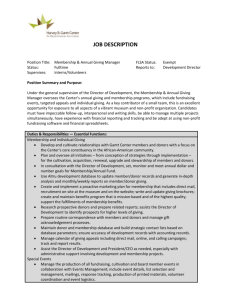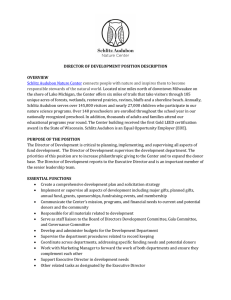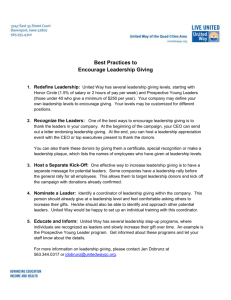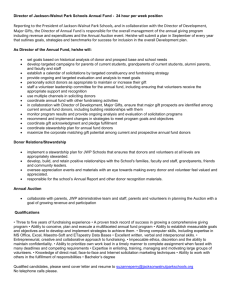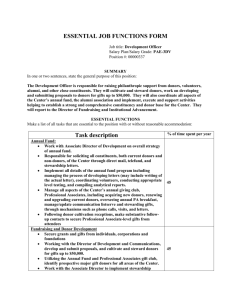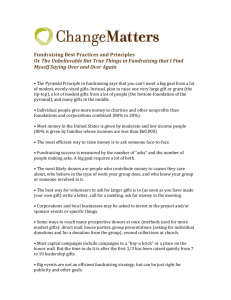Fundraising Principles
advertisement
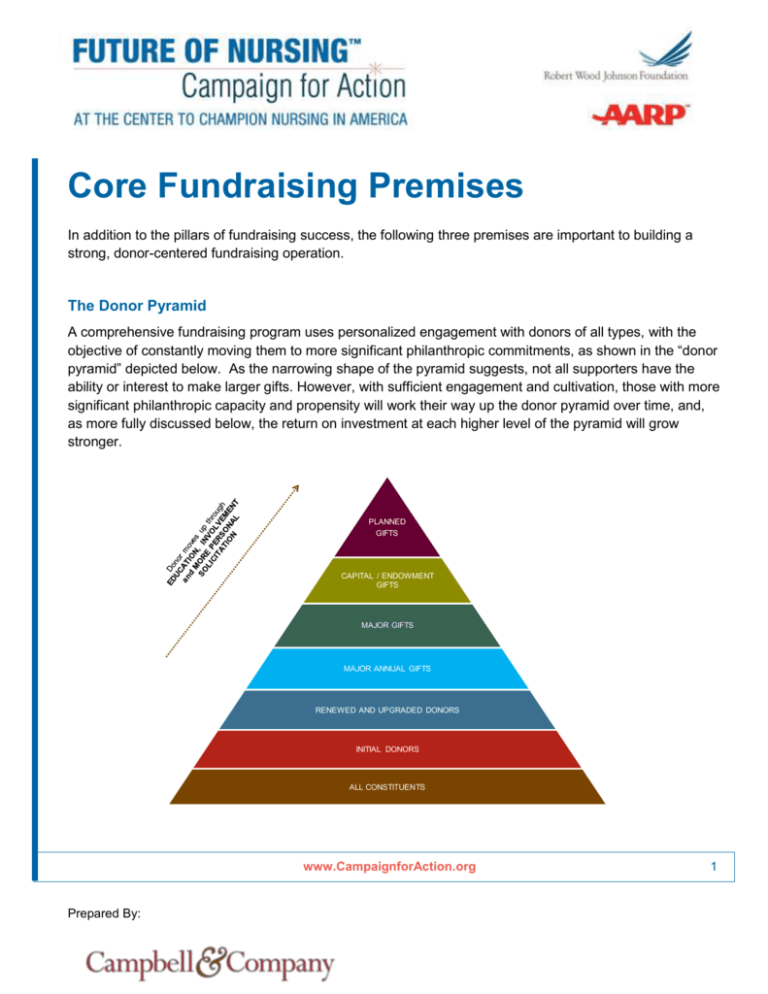
Core Fundraising Premises In addition to the pillars of fundraising success, the following three premises are important to building a strong, donor-centered fundraising operation. The Donor Pyramid A comprehensive fundraising program uses personalized engagement with donors of all types, with the objective of constantly moving them to more significant philanthropic commitments, as shown in the “donor pyramid” depicted below. As the narrowing shape of the pyramid suggests, not all supporters have the ability or interest to make larger gifts. However, with sufficient engagement and cultivation, those with more significant philanthropic capacity and propensity will work their way up the donor pyramid over time, and, as more fully discussed below, the return on investment at each higher level of the pyramid will grow stronger. PLANNED GIFTS CAPITAL / ENDOWMENT GIFTS MAJOR GIFTS MAJOR ANNUAL GIFTS RENEWED AND UPGRADED DONORS INITIAL DONORS ALL CONSTITUENTS www.CampaignforAction.org Prepared By: 1 Relationship Management The donor evolution described above is best achieved through relationship-based fundraising that seeks to engage donors and potential donors in increasingly personal and meaningful ways. This donor-centered fundraising emphasizes relationships rooted in a donor’s philanthropic interests and goals rather than the needs or priorities of the Action Coalition. Prospects and donors typically move through the relationship management cycle illustrated and described below. Identifying potential donors who may have the capacity to make major gifts Qualifying these prospects to determine whether they have the propensity to support the Action Coalition at a major gift level Cultivating prospects through personal outreach and donor-centered strategies that incorporate what the Action Coalition has learned about a prospect Soliciting gifts for specific amounts and specific purposes that reflect the cultivation strategy and represent personally significant or stretch commitments Stewarding donors through continued personal interaction that demonstrates the impact of their gifts on the Action Coalition and ultimately prepares them to make subsequent gifts www.CampaignforAction.org Prepared By: 2 Return on Investment In addition to resulting in larger commitments, graduating supporters to higher levels of giving also tends to offer a greater return on investment. The chart below illustrates this point, providing best practice ranges (shaded red and green) for the cost to raise a dollar across various fundraising programs that roughly correspond with the levels in the donor pyramid. Fundraising Cost Per Dollar Raised $0.80 $0.70 $0.60 $0.50 $0.40 $0.30 $0.20 $0.10 $0.00 Annual Major Planned Events Corp/Fdn Overall What this chart makes clear is that heavy investments and lower average commitments in areas such as annual giving and events result in higher costs per dollar raised through these programs, whereas more focused investments and significantly larger gifts make planned and major giving much more efficient. Although annual fundraising and events are important because they engage a broad base of supporters and provide a common “entry point” for the vast majority of eventual major donors, focusing on moving donors toward major and planned gifts will result in the greatest return on investment. www.CampaignforAction.org Prepared By: 3
